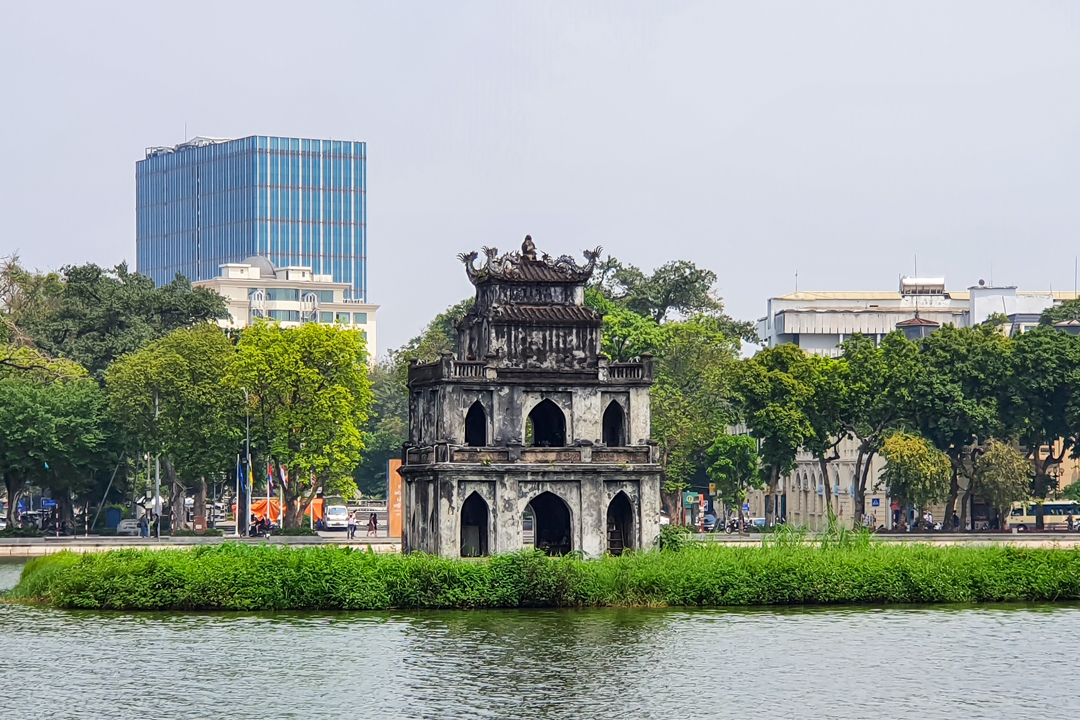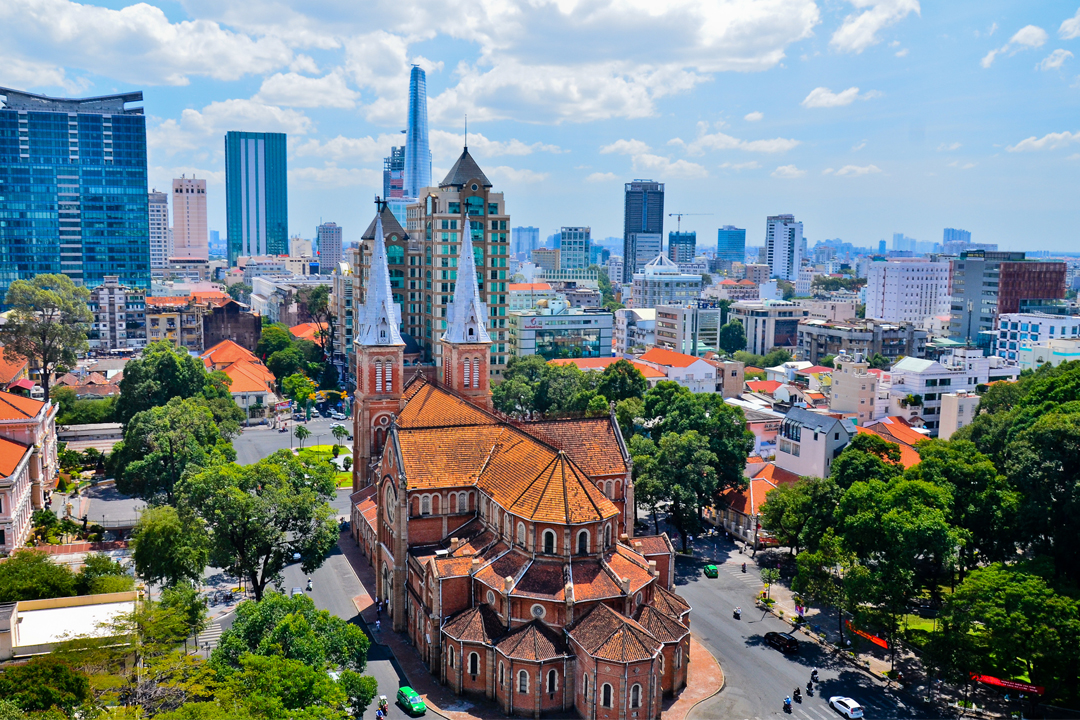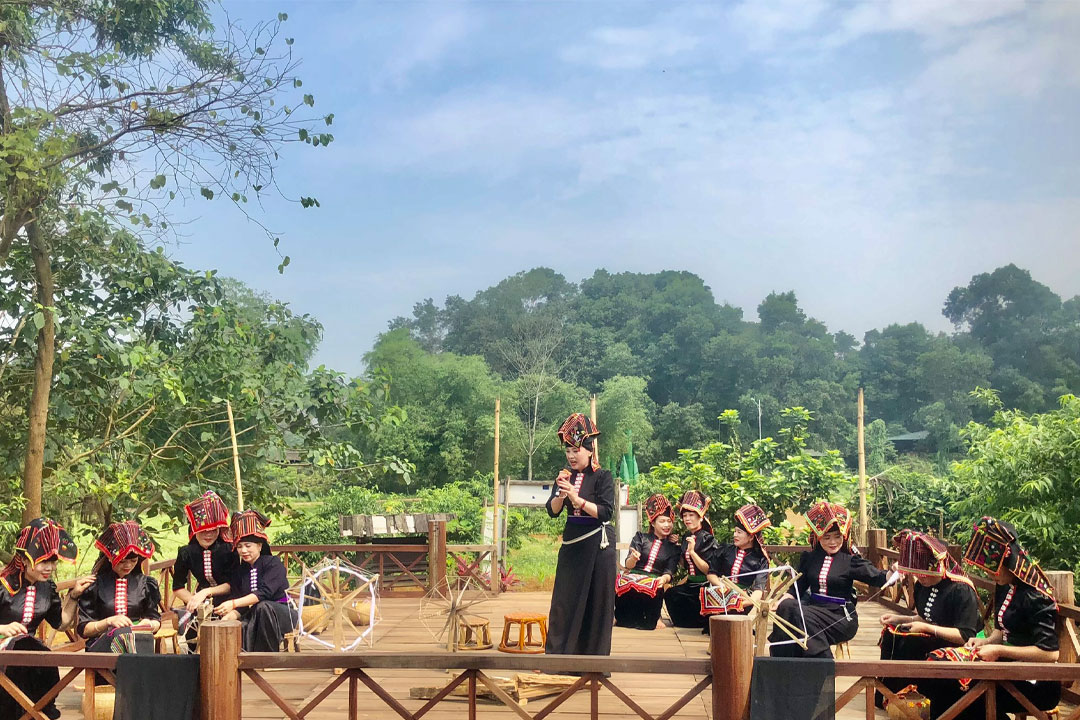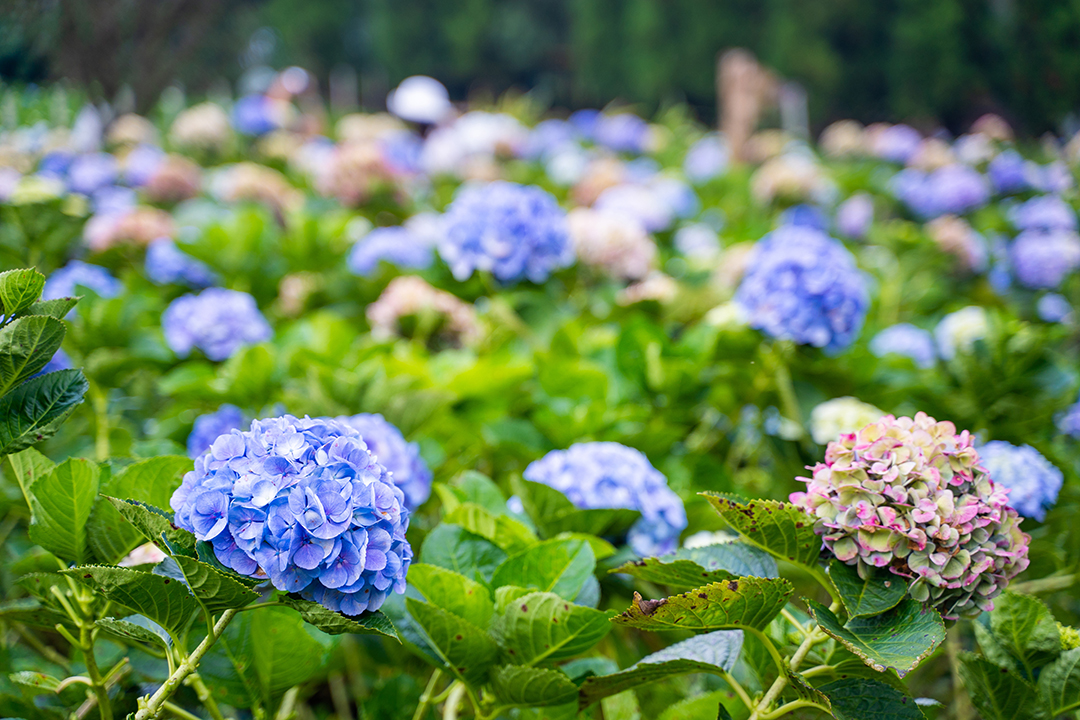Dec - 20 - 2024
Vietnam, a country with a rich tapestry of traditions and celebrations, welcomes the Qixi Festival with open arms. Also known as the "Double Seventh Festival" or the Chinese Valentine's Day. This festival, deeply rooted in folklore and love stories, transcends borders and brings communities together in the spirit of romance and affection.
Qixi Festival: A cross-cultural celebration
Qixi Festival, known as Ngày Thất Tịch in Vietnamese, holds deep meaning and emotional significance in Eastern culture.
Historical origins
Qixi traces its origins to a Chinese legend about the love story between the weaver girl, Chức Nữ, and the cowherd, Ngưu Lang. Over the centuries, this tale has traversed borders and taken root in Vietnamese culture, creating a unique blend of Chinese and Vietnamese traditions during the festival.
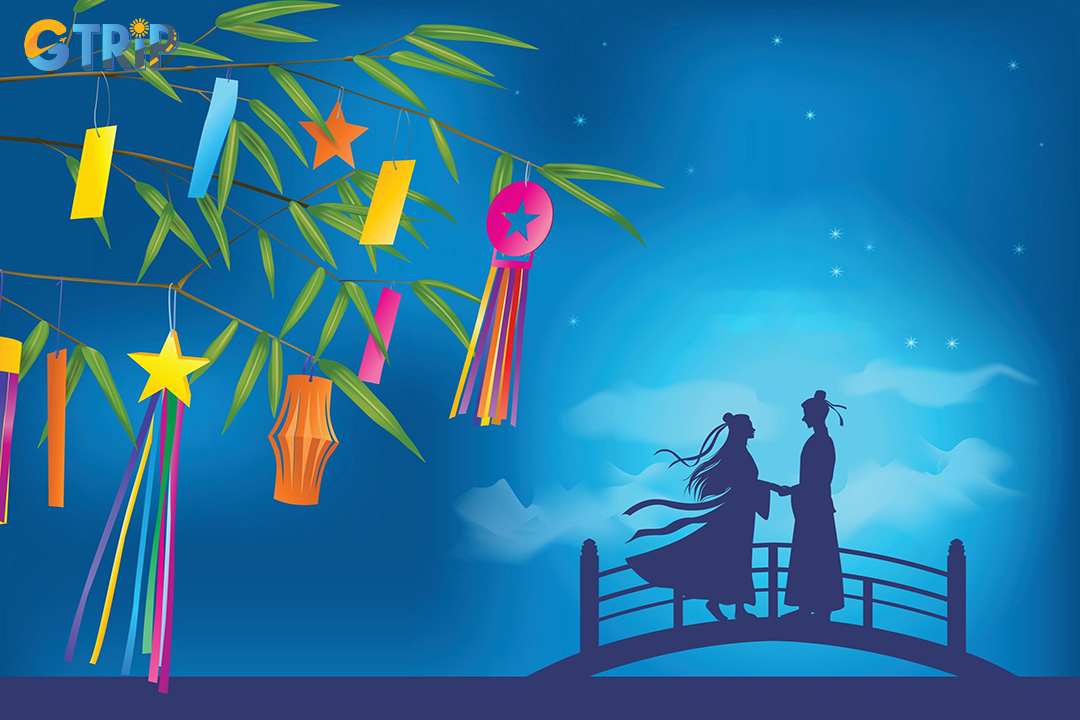
The Qixi Festival originated in China
Vietnamese traditions and customs
In Vietnam, Qixi Festival is celebrated on the seventh day of the seventh lunar month, aligning with the Chinese calendar. This festival holds a significant place in Vietnamese culture as it resonates with the theme of love and romance. People celebrate this occasion by engaging in various customs and rituals, making it a special time to express affection and celebrate relationships.
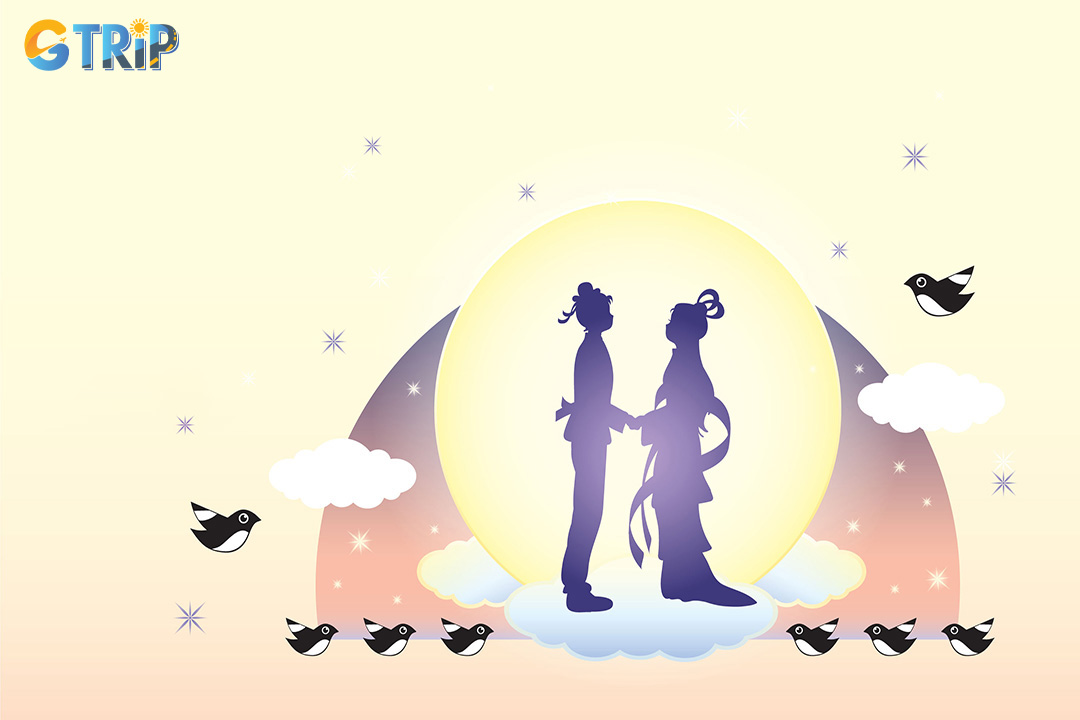
The festival in Vietnam incorporates various cultural elements
Why does it often rain during Qixi Festival?
In meteorological terms, at the beginning of the seventh lunar month in Vietnam, it often rains, known as "mưa ngâu" (sudden and brief shower). The characteristic of these rains is scattered and intermittent, with some days experiencing less rainfall and others more, rather than being continuous. Therefore, this weather phenomenon is described as "trời mưa sụt sùi" (snivel rain).
In folklore, every year, on the 7th day of the lunar July, Ngưu Lan and Chức Nữ have a once-a-year rendezvous. On this day, a flock of ravens assembles to form a bridge over the Ngân Hà River, aiding the celestial couple in meeting. Since the ravens are black, the bridge is named the "Ô Thước Bridge".
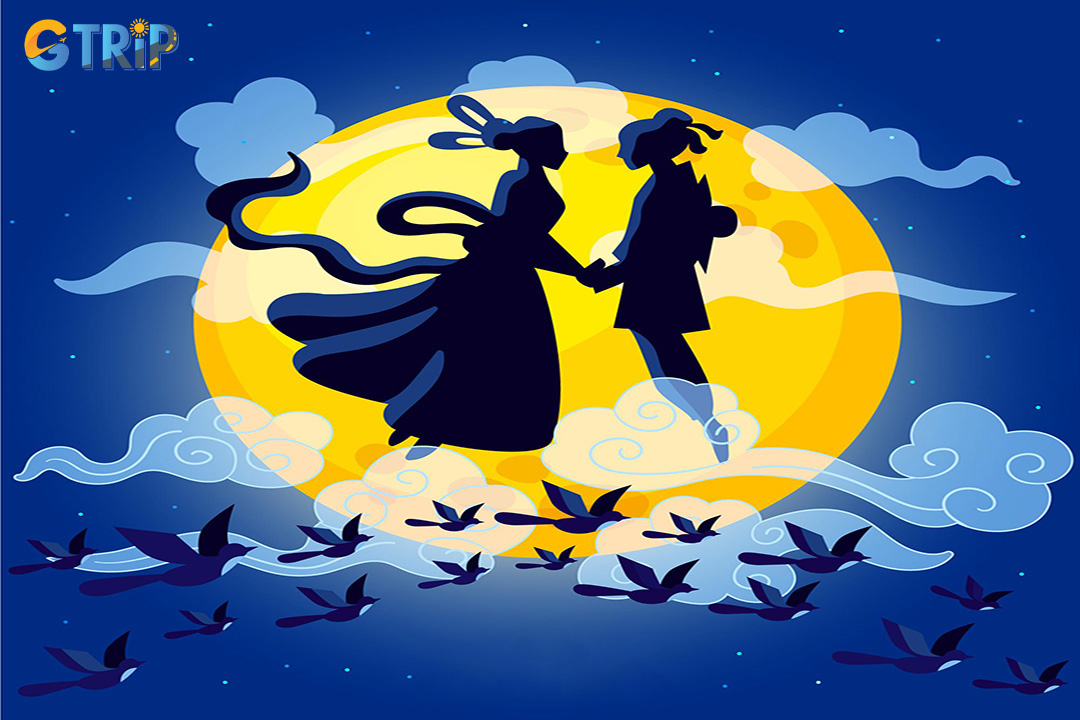
The Qixi Festival is the day when the Ngưu Lang and Chức Nữ meet
Meeting each other, Ngưu Lan and Chức Nữa are overwhelmed with happiness, shedding tears of joy. These tears transform into rain, known as "mưa ngâu" by the locals, signifying the moment when Ngưu Lan and Chức meet again.
Qixi culture in Vietnam
Qixi Festival has been an integral part of Vietnamese culture for quite some time, marked by its unique customs and beliefs. On this day, there are both taboos to avoid and auspicious activities to ensure a happy life.
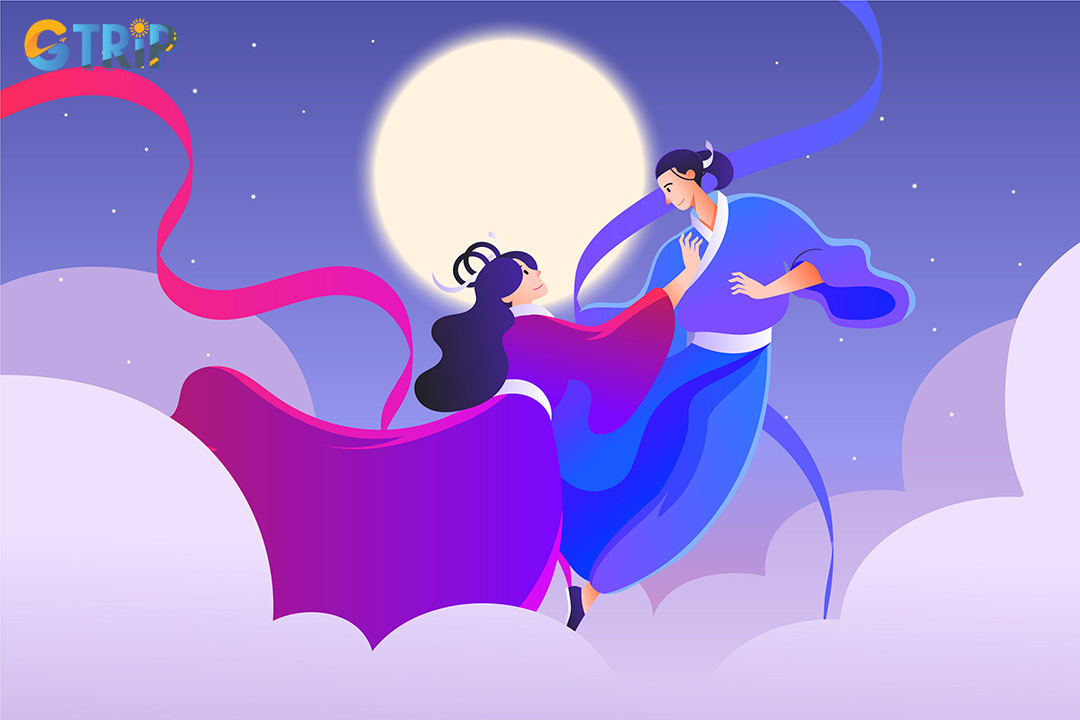
Vietnamese people also hold various beliefs on the day of Qixi Festival
On this day, many people refrain from holding wedding ceremonies, fearing potential misfortunes akin to the legendary story of Ngưu Lang and Chức Nữ. Instead, they often visit temples to pray for good things, peace, and smooth love paths.
Apart from attending the temple for prayers, one cannot overlook a particular food associated with this festival – red beans. According to ancient beliefs, consuming red beans on Qixi's Day is symbolic of seeking blessings. The color red is synonymous with good luck, and indulging in red beans is believed to bring luck to singles in finding their soulmates and to couples, ensuring everlasting companionship.
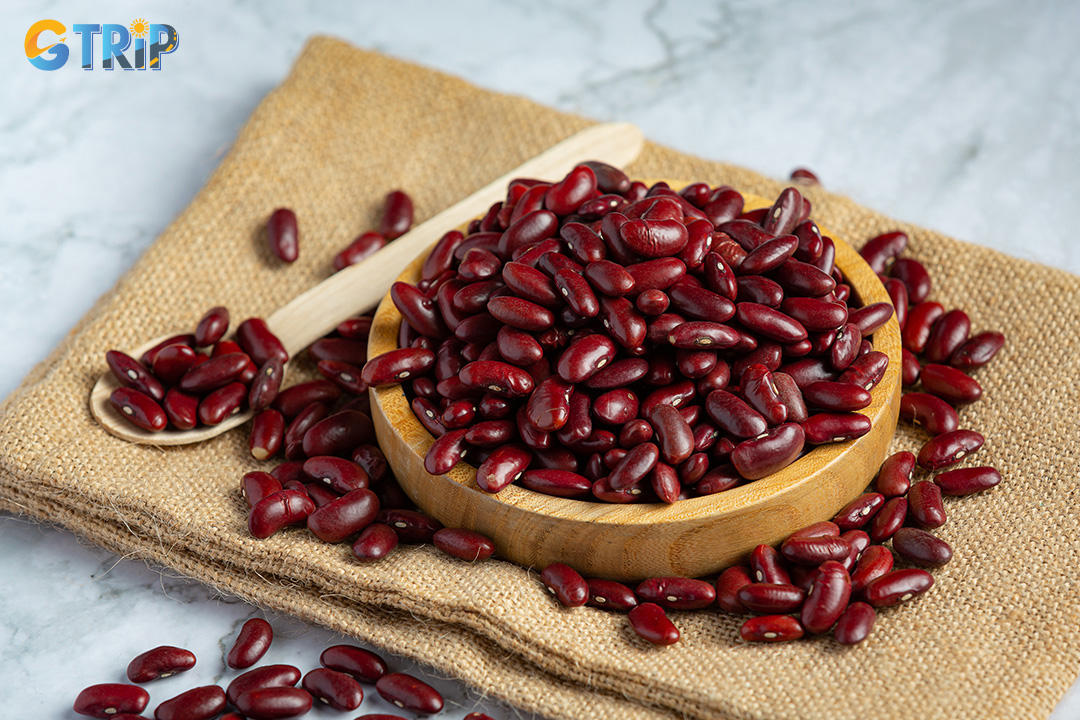
Red beans are the most common food on this day
Qixi Festival usually coincides with the rainy season, posing challenges for construction and renovation projects. Hence, people tend to avoid any construction work on this day to steer clear of potential misfortunes. Many individuals fear that initiating building activities on Thất Tịch may lead to family disunity.
Qixi Festival is the fusion of ancient Chinese mythology with Vietnamese customs and has given rise to a celebration that is both culturally rich and dynamically alive. To truly experience the enchantment of the Qixi Festival, consider planning a travel to Vietnam during this auspicious time.

